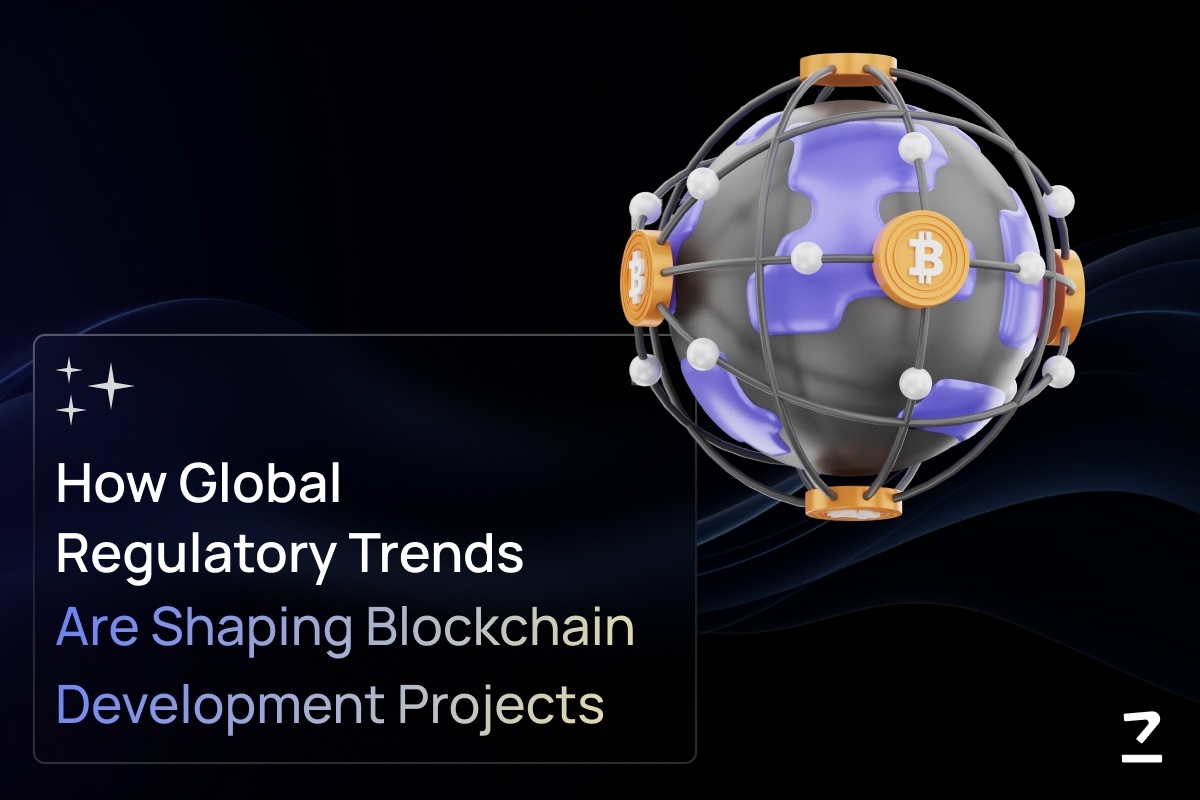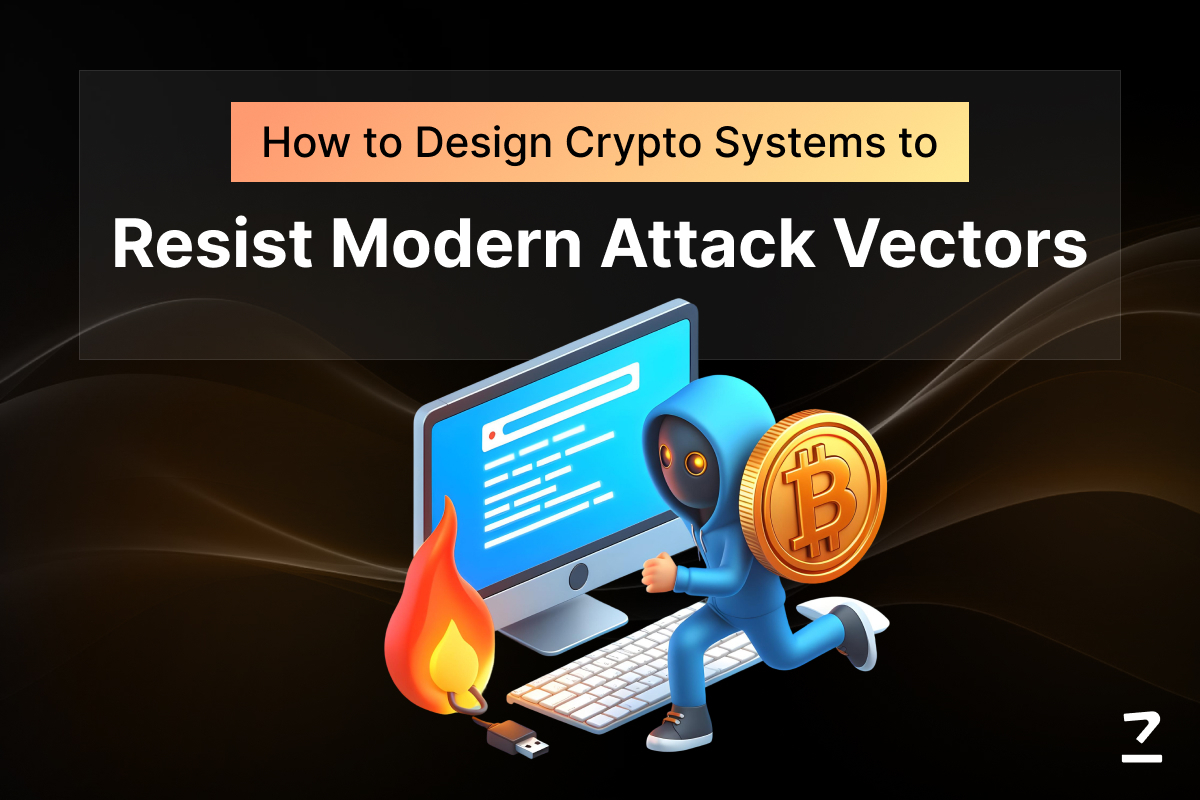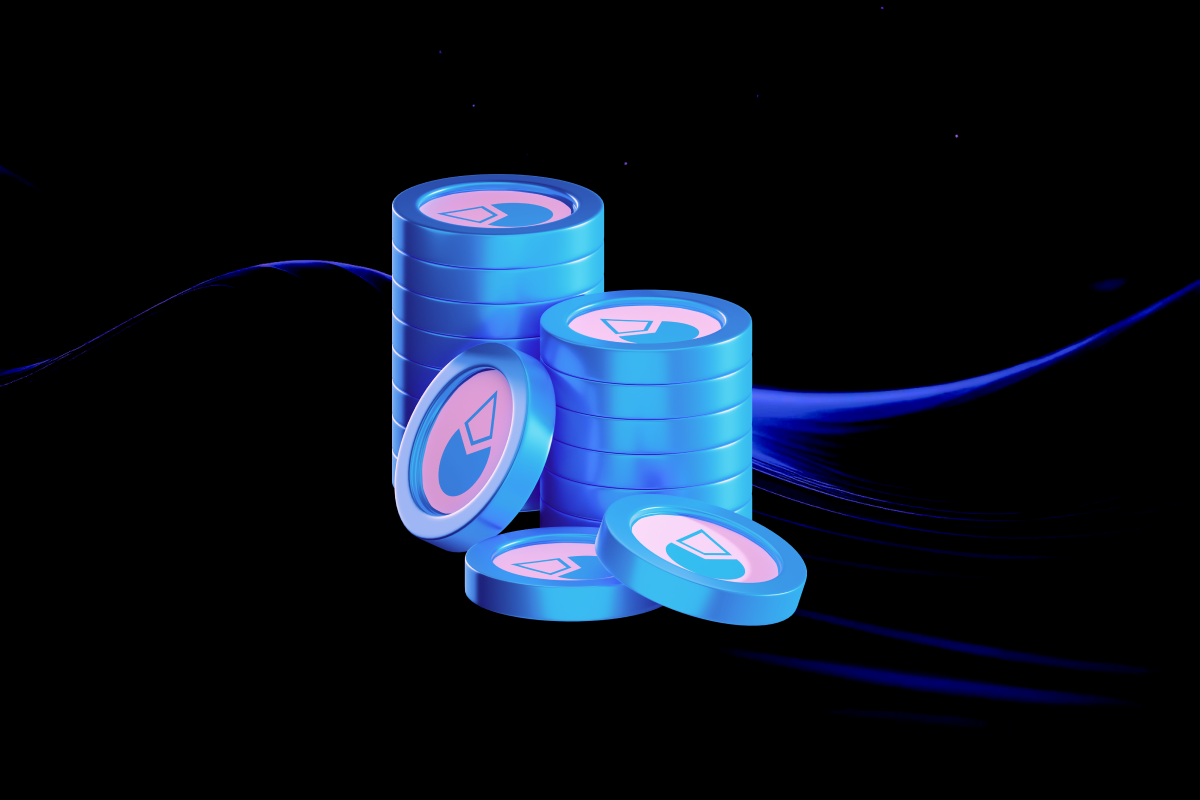SHARE THIS ARTICLE
How to Choose the Right Blockchain Development Company?
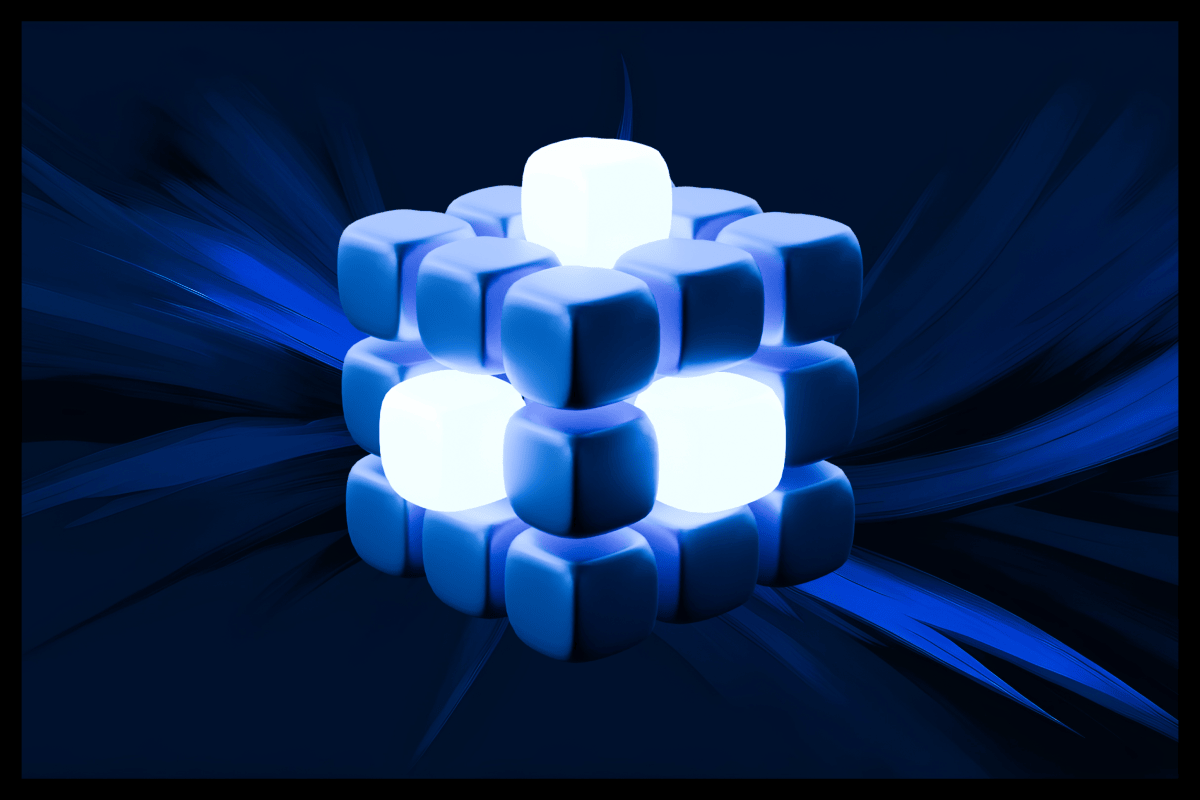
Understanding Your Blockchain Requirements
Before you start hunting for a blockchain development company you need to have a clear picture of what you want to achieve with blockchain. Without a definite use case in mind, you risk choosing a solution that doesn't fit your needs or adds unnecessary complexity. Start by identifying the problem you're trying to solve and how blockchain can address it.
Use Case Identification
Not all blockchains are created equal, and the right choice depends on what you’re trying to accomplish. For example, if your project involves open data sharing or a decentralized application, a public blockchain like Ethereum might be the way to go. On the other hand, if you're dealing with sensitive information, a private blockchain could provide the controlled access and data confidentiality you need.
Industry-Specific Needs
Different industries come with different expectations and challenges, and blockchain development services should align accordingly. Take healthcare, for instance—data privacy and compliance with regulations like HIPAA are critical. A blockchain development company familiar with these regulatory frameworks will be better suited for projects in this field.
On the flip side, the finance industry often requires real-time transaction settlement and high throughput capabilities. In such cases, your blockchain partner should have experience with scalable solutions that handle large volumes of transactions efficiently.
Another example is supply chain management, where transparency and traceability are vital. Blockchain can track goods from production to delivery, helping to detect fraud or ensure quality standards are met. The ideal partner for this use case would be one that has previously developed blockchain solutions for tracking logistics or verifying product authenticity.
Clearly defining your use case and industry needs will not only help you choose the right blockchain company but also optimize the development process. It gives you a solid foundation to discuss requirements, set realistic goals, and achieve meaningful outcomes.
Evaluating Technical Proficiency
Once you’ve pinned down your blockchain requirements, the next step is to assess the technical chops of potential blockchain development firms. Not all companies are equal when it comes to technical expertise, so you’ll want to dig deeper into their skills and capabilities to see if they’re the right fit for your project.
Blockchain Platforms Expertise
Different blockchain platforms serve different purposes, and the choice of the right platform can make or break your project. A company well-versed in multiple platforms like Ethereum, Hyperledger, Solana, or Polygon brings a lot to the table. For instance, Ethereum's smart contracts might suit your project’s needs for automation, while Hyperledger may be better for private, permissioned networks that require controlled data access.
Multi-platform capabilities are an advantage because they give you flexibility. A development partner that can work with more than one blockchain can help you choose the platform that best fits your needs, rather than trying to make your requirements fit a platform they’re comfortable with. This level of versatility can make a big difference, especially if your project involves complex requirements or dynamic use cases.
Security Best Practices
Blockchain security is not limited to just keeping data safe. It involves smart contract auditing, addressing vulnerabilities, and maintaining data integrity across the network. Your chosen blockchain development company should be able to demonstrate experience in applying security best practices, including rigorous testing protocols, encryption techniques, and adherence to security standards.
Look for a company that has conducted smart contract audits in the past and can explain how they manage potential risks, such as re-entrancy attacks or front-running issues. A track record of successful security audits will speak volumes about their commitment to delivering secure and effective blockchain solutions.
Tech Stack Alignment
Don’t overlook the importance of aligning the blockchain company’s tech stack with your existing setup. For a smoother development process, it helps if they’re already proficient with the programming languages, databases, and cloud services you currently use. If you’re running applications in Python and using AWS for cloud services, a blockchain development company with expertise in Solidity and familiarity with cloud integrations will be a better fit than one focused solely on JavaScript or Azure.
The more aligned the tech stack, the easier it will be to integrate blockchain with your current systems. It will also reduce development time and potential headaches, especially when dealing with complex integrations or large-scale deployments.
Assessing Development and Delivery Methodologies
When choosing a blockchain development company, it’s important to assess their development and delivery methodologies. The approach they take can significantly impact your project’s success, timeline, and overall quality.
Agile vs. Waterfall
Agile and Waterfall are two commonly used methodologies, each with its strengths and drawbacks. Agile is known for its flexibility. It breaks the project into small, manageable sprints, allowing for frequent adjustments based on feedback. This approach is ideal for blockchain projects where requirements may evolve, or new features need to be added during development. On the flip side, it requires ongoing communication and may stretch timelines if the scope keeps changing.
Waterfall, on the other hand, follows a more structured and linear process. It’s great for projects with well-defined requirements that are unlikely to change. Once a stage is complete, the team moves to the next, making it easier to track progress. However, this rigidity can be a drawback if any changes need to be made later in the project.
A hybrid approach often works best for blockchain projects, allowing teams to tap into the structured nature of Waterfall for initial planning while using Agile for iterative development and ongoing improvements. This way, you can keep the project on track while still making room for adjustments as needed.
Tokenization projects will have different requirements than those focusing on data integrity or supply chain tracking. If smart contracts are central to your project, the ability to automate agreements and transactions will be a key factor. Defining these use cases upfront will guide you in selecting a blockchain development company that has specific experience with the type of solution you're aiming for.
DevOps and Continuous Integration
Incorporating DevOps practices can make a substantial difference for blockchain projects. DevOps focuses on collaboration between development and operations teams, which leads to quicker and more reliable deployments. Continuous Integration (CI) allows code changes to be automatically tested and merged into the codebase, making it easier to catch bugs early and maintain code quality.
When it comes to scaling blockchain solutions or deploying smart contracts across multiple networks, DevOps practices can optimize the process. Automated testing, version control, and containerization tools like Docker can be used to simplify deployment and make sure that changes do not disrupt the existing functionality.
Code Audits and Peer Reviews
Code audits and peer reviews are essential for maintaining the quality and security of blockchain development services. Regular code audits can help identify vulnerabilities early on, especially in smart contracts where a single flaw could lead to significant financial loss or data compromise. Peer reviews add an extra layer of scrutiny, allowing other developers to spot potential issues that the original coder might have missed.
Make sure the blockchain development company you choose has an efficient process for code reviews and auditing. Ask about their past experiences with audits and how they handle security checks. A company that prioritizes these practices is more likely to deliver a secure, high-quality product that stands the test of time.
Company's Experience with Decentralization Challenges
Decentralization is a core feature of blockchain but it also comes with its own set of challenges. The ability to handle issues like scalability and the balance between decentralization and business requirements can greatly affect a project's outcome. Understanding how a blockchain development company tackles these challenges can give you a clear picture of their capabilities.
Experience in Overcoming Scalability Issues
Scalability is a big deal when it comes to blockchain technology. As the number of transactions increases, so does the strain on the network, leading to issues with transaction throughput and latency. A capable blockchain development company should be able to address these challenges through techniques like layer-2 solutions, sidechains, or sharding.
For instance, integrating layer-2 scaling methods like the Lightning Network for Bitcoin or rollups for Ethereum can significantly boost transaction speeds while reducing costs. Look for companies that have successfully implemented such solutions in past projects. This shows they’re not just aware of the scalability issue but have the practical know-how to solve it.
Decentralization vs. Centralization Approach
Achieving the right balance between decentralization and centralization is tricky. Too much decentralization can slow down the network and make it challenging to manage, while excessive centralization defeats the purpose of using blockchain in the first place.
A good blockchain development company will understand how to strike this balance. For example, they might use a hybrid approach where the core blockchain remains decentralized, but some off-chain components handle high-frequency data. This can help maintain the benefits of decentralization while meeting business needs for speed and efficiency. Ask how they’ve handled such trade-offs in previous projects, as this will give you a sense of their ability to adapt to different business requirements.
Case Studies on Successful Implementations
The proof is in the results. When assessing a company's experience with blockchain development services and decentralization challenges, look for case studies that demonstrate real-world success. Did they help a client scale their decentralized finance (DeFi) platform without sacrificing security? Or did they implement a permissioned blockchain for a supply chain company that needed to maintain data privacy while still benefiting from distributed ledger technology?
These examples can provide valuable insights into the company’s capabilities and their approach to solving decentralization-related challenges. It’s not just about whether they understand the technology; it’s about whether they can apply it effectively to deliver real business value.
Customization Capabilities and Smart Contract Development
Blockchain projects often demand more than just off-the-shelf solutions, especially when there are unique business requirements or complex workflows involved. When evaluating a blockchain development company, consider how well they can deliver custom solutions and handle the intricacies of smart contract development.
Customized Solutions vs. Off-the-Shelf Products
While pre-built templates and standard solutions may be quick to deploy, they often lack the flexibility needed for projects with specific requirements. A company that specializes in customized blockchain solutions can adapt the technology to fit your exact needs, whether it involves unique business logic, specific compliance requirements, or industry-specific features.
Choosing a firm that can deliver a truly customized solution means you get a blockchain system that aligns with your processes rather than having to adjust your business to fit the technology. This is especially important for industries with strict regulations or complex operations, where a one-size-fits-all approach just won’t cut it.
Complex Smart Contract Use Cases
Smart contracts are at the core of many blockchain applications, from automating transactions to facilitating decentralized finance. However, not all smart contracts are simple. When it comes to developing complex contracts that include features like multi-signature requirements, proxy patterns for upgradability, or integrating external data through oracles, the development partner’s expertise becomes crucial.
Look for a blockchain development company that has experience in creating sophisticated smart contracts. For instance, if they’ve worked with DeFi projects that required multi-signature authentication for added security, or have integrated real-time data from external sources using oracles, that’s a good indication they know how to navigate complex use cases. This expertise not only adds functionality but also helps avoid costly bugs or vulnerabilities.
Integration Capabilities
Blockchain solutions rarely operate in isolation. More often than not, they need to work in tandem with existing systems, whether that’s an enterprise resource planning (ERP) system, a customer relationship management (CRM) tool, or third-party services like payment gateways. A blockchain development company with strong integration capabilities can connect your new blockchain solution to these existing systems, facilitating a smooth flow of data and processes.
The ability to integrate with legacy systems or third-party applications can also extend the functionality of your blockchain solution, allowing you to tap into the best of both worlds—existing technology investments and new blockchain-based features. Make sure to ask potential partners about their past experience with integrations and whether they have tackled similar challenges to what your project may face.
Compliance and Regulatory Awareness
With blockchain, compliance and regulatory awareness are critical. The rules vary across regions and industries, and a lack of compliance can lead to legal issues or financial penalties. When choosing a blockchain development company, it’s important to assess their understanding of regulatory requirements and how they implement compliance measures.
Knowledge of Jurisdictional Requirements
Blockchain regulations are not one-size-fits-all. What works in one country may not be acceptable in another. For example, data privacy rules like GDPR in Europe have specific requirements for how personal data is stored and processed, while financial regulations such as FINRA in the United States impose different standards for financial transactions and securities.
A development firm with a solid grasp of jurisdictional requirements can guide you through these complexities, helping you avoid compliance pitfalls. Whether it's managing data according to regional privacy laws or adhering to specific financial regulations, the company should have experience working within different legal frameworks and adapting blockchain solutions to meet various standards.
Token Classification and Compliance Audits
If your project involves tokenization or DeFi, compliance becomes even more crucial. Depending on how your tokens are classified (as utility tokens, security tokens, or otherwise), different regulations may apply. A competent blockchain company will be able to conduct thorough compliance audits to classify tokens correctly and implement the necessary controls to meet regulatory requirements.
For example, if your project involves security tokens, the company should be familiar with the regulations governing securities in your jurisdiction and know how to navigate the registration process. Their experience with compliance audits can help avoid legal complications and set up your tokenized solution on a solid regulatory foundation.
Experience with KYC/AML
In certain blockchain applications, particularly those related to finance or exchanges, Know Your Customer (KYC) and Anti-Money Laundering (AML) procedures are mandatory. These protocols help identify users and prevent illegal activities such as money laundering or fraud.
A blockchain development company experienced in KYC/AML integration can implement these processes in a way that meets regulatory requirements while also providing a smooth user experience. This could involve integrating KYC checks directly into smart contracts or setting up automated workflows for identity verification.
Make sure the firm has a proven track record of working on projects that involve KYC/AML compliance. This demonstrates that they know how to handle the extra layers of scrutiny these procedures bring and can adapt the technology to keep your project compliant.
Partnerships and Ecosystem Involvement
A strong network of partnerships can speak volumes about a blockchain development company’s credibility and technical expertise. Collaborations with key players in the blockchain space can provide access to the latest technology, tools, and best practices. When evaluating potential partners, take a look at their strategic alliances and ecosystem involvement.
Strategic Partnerships and Alliances
Blockchain is a dynamic field, and having strong partnerships with blockchain foundations, technology providers, or other stakeholders can give a company an edge. These relationships often mean early access to new updates, technical support, and insights into the latest industry trends. For example, a partnership with the Ethereum Foundation or Hyperledger can indicate that the company is well-versed in using these platforms and stays up-to-date with their development.
In addition to blockchain-specific partners, connections with cloud service providers, data storage solutions, or IoT technology providers can broaden the scope of what the development firm can deliver. A company with a diverse range of partnerships is often better positioned to offer comprehensive solutions personalized to different business needs.
Open Source Contributions and Community Involvement
Active participation in the blockchain community is another positive indicator of a company’s commitment and expertise. Contributions to open-source projects show that the firm not only uses blockchain technology but also helps shape it. Whether they contribute to improving existing blockchain protocols, develop smart contract libraries, or share their own tools and frameworks, this involvement reflects a deep technical understanding and leadership in the space.
Apart from code contributions, community involvement can include hosting blockchain meetups, participating in hackathons, or presenting at industry conferences. A blockchain development company that is actively engaged in the community is likely to stay ahead of the curve and adopt new developments quickly.
Partnerships with Security Auditing Firms
Security is a critical aspect of blockchain projects, especially when dealing with smart contracts and financial transactions. Collaborating with reputable security auditing firms can help ensure the safety and reliability of the developed solutions. When a blockchain development company regularly partners with well-known auditors, it indicates that they prioritize security and follow industry best practices for protecting against vulnerabilities.
These partnerships also facilitate thorough code reviews and audits, which can be crucial for catching potential issues before deployment. Whether it’s CertiK, ConsenSys Diligence, or another trusted auditor, the involvement of external security experts adds an extra layer of assurance to your blockchain project.
Post-Deployment Support and Maintenance
The work doesn’t stop once your blockchain solution is live. Keeping everything running smoothly requires ongoing support, timely upgrades, and a plan for scaling as your business grows. When evaluating a blockchain development company, look into their approach to post-deployment support and how they tackle maintenance challenges.
Support Structure
A reliable support structure is essential for handling the inevitable issues that come up after deployment. This includes bug fixing, troubleshooting, and rolling out new features to keep your blockchain solution up-to-date. A good development firm will offer various support options, such as 24/7 availability or dedicated support teams for critical systems. Find out how quickly they can respond to issues and whether they provide different service levels based on your requirements.
Regular software updates and patches are also part of a solid support plan. These updates help fix bugs and vulnerabilities while keeping the system compatible with the latest blockchain standards. Make sure your partner is committed to ongoing improvements and not just a one-time deployment.
Upgrade and Scaling Capabilities
With time, your blockchain solution may need upgrades or scaling to accommodate new features, higher transaction volumes, or more users. The company you choose should have a plan for handling system upgrades, whether that involves adding new nodes to a blockchain network, increasing smart contract capabilities, or integrating with additional third-party services.
Scalability is especially important for blockchain applications that handle high transaction volumes, like DeFi platforms or supply chain management systems. A capable partner will be able to scale the solution smoothly without causing downtime or disruptions to your operations.
Monitoring and Alerting Systems
A proactive approach to maintenance means catching problems before they escalate. Monitoring tools are used to detect potential issues early, such as network congestion, abnormal transaction patterns, or system errors. These tools can be configured to send alerts to the support team, allowing them to take swift action and prevent minor issues from turning into major headaches.
Make sure the blockchain development company employs comprehensive monitoring solutions that cover various aspects of the system, including network performance, smart contract execution, and data integrity. Regular audits and automated alerts can keep you informed about the system's health and help you avoid costly downtime.
Why Codezeros Stands Out in Blockchain Development
At Codezeros, we don’t just build blockchain solutions—we create value by understanding the unique needs of each project and delivering technology that truly fits. Our approach is straightforward: blend technical expertise with practical solutions, and always keep the end goals in sight. Here’s what makes us different.
Unique Approach and Expertise
We approach blockchain development with a focus on delivering practical solutions rather than just technology for its own sake. Our team has a deep understanding of various blockchain platforms, including Ethereum, Hyperledger, and Polygon, allowing us to choose the right tools for each project rather than forcing a one-size-fits-all approach.
We’ve also formed strategic partnerships with blockchain foundations and security auditing firms to stay ahead of the curve in terms of technology and compliance. This network of partnerships not only gives us access to the latest developments but also ensures that we deliver solutions that meet the highest security standards.
One standout project involved developing a custom tokenization platform for a real estate company. We implemented a unique solution that allowed fractional ownership of properties while meeting complex regulatory requirements. Our ability to integrate the blockchain solution effectively with their existing property management software sets us apart from others in the space.
Industry-Specific Solutions
Our industry expertise goes beyond generic use cases, and we’ve worked across several sectors, each with its own set of requirements. In the finance sector, we’ve developed DeFi platforms with advanced smart contracts that incorporate multi-signature authentication and oracle integrations, allowing for secure and dynamic financial transactions. This experience has equipped us to handle the challenges of high-frequency trading and cross-chain interoperability.
For the supply chain industry, we implemented a blockchain-based tracking system that provides end-to-end visibility for shipments. Our solution allowed companies to monitor the condition and location of goods in real-time, making it easier to comply with quality standards and regulatory requirements. The flexibility and robustness of our solution helped clients optimize their logistics and reduce operational costs.
At Codezeros, we believe that understanding the nuances of different industries is crucial for delivering meaningful blockchain solutions. Our hands-on experience across various sectors gives us the insight needed to customize each project to meet specific business goals.
Wrapping It Up
Choosing the right blockchain development company can be the difference between a solution that works and one that truly drives your business forward. At Codezeros, we bring a blend of technical skill, industry knowledge, and a practical approach to each project. Our track record speaks for itself, with custom solutions that address real-world challenges across finance, supply chain, real estate, and more.
If you're ready to take the next step with a partner who understands the ins and outs of blockchain development, let's talk. Reach out to us for a consultation. We’re here to discuss your needs, share our insights, and deliver solutions that work.
Frequently Asked Questions (FAQs)
What is the cost of hiring a blockchain development company?
The cost can vary depending on the complexity of your project, the blockchain platform used, and the features you want to include. Basic blockchain solutions might start around $30,000, while more complex projects like DeFi platforms or custom tokenization solutions could go upwards of $100,000. The total cost will also depend on factors like development time, ongoing support, and any third-party integrations.
How to evaluate a company’s expertise in blockchain platforms?
Start by looking at their portfolio and past projects. A company experienced with multiple blockchain platforms like Ethereum, Hyperledger, or Solana can give you more flexibility in choosing the right technology. Also, ask about their partnerships with blockchain foundations, community involvement, and contributions to open-source projects. This kind of experience reflects a deeper understanding of the technology and the ability to adapt to different use cases.
How long does it take to develop a custom blockchain solution?
The development time can range from a few weeks to several months, depending on the project's scope. A basic blockchain application may take 2-3 months, while a more advanced solution involving custom smart contracts, integrations, and security audits could take 6 months or longer. Factors like the complexity of features, the platform used, and compliance requirements can influence the timeline.
Can a blockchain development company offer data privacy and security?
While no system can guarantee complete immunity from breaches, a reliable blockchain development company can implement strong security measures to protect data. This includes smart contract audits, encryption techniques, and adherence to regulatory standards like GDPR. The use of monitoring tools and regular security audits also helps in identifying and addressing potential vulnerabilities before they become issues.
If you have more questions or want to know how Codezeros can help with your specific blockchain needs, feel free to reach out. We're here to guide you through the process.
Post Author
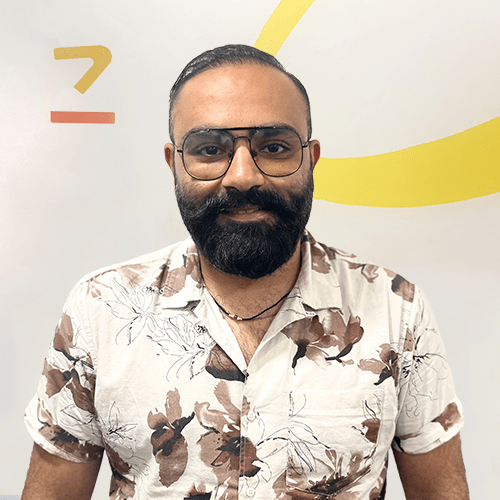
Vivek is a passionate writer and technology enthusiast with expertise in blockchain development. As the lead writer for Codezeros, he aims to educate and inform readers about the potential of blockchain technology and simplify complex concepts to present them in an engaging manner for both technical and non-technical readers.
Build secure, scalable, and efficient blockchain applications with Codezeros.
Future-proof your business with Codezeros. Our expert team specializes in building secure, scalable, and efficient blockchain solutions, from smart contracts to decentralized applications.

